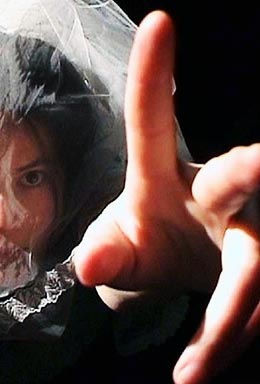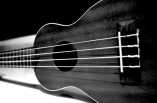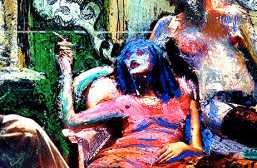Who’s Afraid of Non-Naturalism? The allure of the ‘real’ play

Although I am skeptical about Hamlet’s personal likeability, I doubt that anyone would disagree with his pronouncement that the purpose of performing and the theatre itself is “to hold, as ‘t were, the mirror up to nature”. Often, naturalistic theatrical performances reflect contemporary society and its conventions, or how we have operated within society in the past. We see our lives mirrored in the lives of the characters; the way they relate to one another, the way they respond to particular stimuli in their environment, the way they express themselves. In various works, naturalistic pieces serve to expose a certain harshness of life – a bluntness, a frankness that exists within the unapologetic nature of existence. This trait can also be replicated within non-naturalistic performances. However, this is more frequently accomplished through more obscure means. As a result, we (the safe, careful audience) appear to have some fear of non-naturalistic performance. We shy away from the world of theatrical discourse that steers away from the everyday and takes you to an extraordinary place. This world is a strange world, it seems, a mad world. Contrastingly, dramatic works that hail as ‘naturalistic’ stay within the confines of reality, never puncturing the illusion of life being portrayed as we live it… am I the only one that’s bored already?
Émile Zola, an author, playwright, theatre theorist and critic, was a key contributor to the theatrical development that we know as ‘naturalism’, as well as a major player in the literary school of naturalism. Despite the weakness in his own plays, he understood the role of theatre in society very well, and the ever-increasing importance of one’s surroundings in a theatrical sense. He also appreciated the clarity of theatrical naturalism, and the enriching cultural and intellectual benefits of naturalistic theatre on one’s existence. In many ways, his opinions can be justified. A piece of naturalistic theatre makes sense, for the most part, and unfolds in chronological order. Especially relevant in the 19th century, there was a sense of such theatre being ‘proper’; it hardly ever challenged society’s ideological structures nor did it shock audiences into considering alternative viewpoints in how to live their lives. Theatre stuck so severely to the idea of maintaining a sense of reality that companies used live animals on stage to recreate real scenarios.
 However, that’s just my bone to pick. There were no loopholes, no gaps in the presentation of reality to lure you into a world that so vastly differed from your own. There was no reason to take an audience member out of their ordinary world and offer them something extraordinary to explore. Ordinary was life and ordinary worked. Having said that, with changing times and changing technologies, the very nature of theatre has also transformed. Naturalism can now be exciting. In the face of an ever-evolving world, with distinct cultures and practices, the theatrical style of naturalism has emerged with numerous stimulating works under its wing. In my experience, I have found that this type of theatre excels in helping audiences to understand life itself and its encompassing meanings, rather than simply reflecting it. However, non-naturalistic works can achieve an identical effect, and more often than not, they provide a far more interesting and complex vehicle to reach the same insight.
However, that’s just my bone to pick. There were no loopholes, no gaps in the presentation of reality to lure you into a world that so vastly differed from your own. There was no reason to take an audience member out of their ordinary world and offer them something extraordinary to explore. Ordinary was life and ordinary worked. Having said that, with changing times and changing technologies, the very nature of theatre has also transformed. Naturalism can now be exciting. In the face of an ever-evolving world, with distinct cultures and practices, the theatrical style of naturalism has emerged with numerous stimulating works under its wing. In my experience, I have found that this type of theatre excels in helping audiences to understand life itself and its encompassing meanings, rather than simply reflecting it. However, non-naturalistic works can achieve an identical effect, and more often than not, they provide a far more interesting and complex vehicle to reach the same insight.
Now, that’s where I tend to lose some people. Don’t get me wrong, I mean I love naturalism, it revs my engine, but it does not belong in every theatre (and if you understood that Anchorman reference and laughed, then I’ll assume you’re on my side). Non-naturalism is intriguing and fascinating and insightful! By its very definition, it refuses to follow the constraints of the natural rhythms or patterns of life. Art that allows a glimpse into the mad, the absurd, the unusual, the DIFFERENT, should be praised and reproduced, not shunned for the thing that classifies it – not being natural. Non-naturalistic works possess the ability to transcend language, a form that everybody understands in one way or another, and communicate complex, intellectual and emotional ideas. Ideas that are confronting and conflicting, but inspire thought all the same. Ideas that an audience member may never have wanted to face, ideas that are essentially small fragments of knowledge that have lingered in the back of their psyche that have been waiting for the right moment to tear them up from the inside.
Of course, when phrased in such a way, that notion is utterly terrifying. But that’s exactly what makes it riveting and frightening and exhilarating all at once. It can be so wildly confronting that, for an afternoon at least, you are wholly consumed by what you have just seen. Your mind is racked with thoughts and desires that you have never dared to consider. Your theatrical experience becomes more than just a negligible, transient event on a timeline. However, like performances of any theatrical style, I do acknowledge that non-naturalistic works can be awful. A particular style of performance, no matter how gutsy it is, can not save a piece from poor execution and inattentive management. And I say that as someone who was dragged to an hour long performance by a group of women who painted their ‘dreams’ using their own menstrual blood. Oh, how post-modern! How self-aware! Not even close, considering how little they explored their ideas and how repetitive and dragging the show was. Non-naturalism can not rescue a piece of theatre from atrocity, but it can bestow some unconventional qualities on a performance, and sometimes (although not in the ‘drawing with menstrual blood’ scenario), that’s just about the best thing.
I will admit, both theatrical styles have their place, and often, both shine in performance under certain circumstances. Independent productions, shows from large-scale theatre companies, one-man shows inside their own garages; naturalism and its counterpart will pop up everywhere, as these styles have done in the past, and they will most likely be employed to ensure a successful show. However, for what it’s worth, when elements of non-naturalism are leaked into performance, generally, a more astonishing and bracing world emerges before you. So if you must, “… o’erstep not the modesty of nature”, but do not forget the importance of non-naturalistic performance works in this day and age. They hold the power to incite talk, and provoke action. Don’t let an empty theatre and a sizeable debt act as concrete reminders of its significance. I’d hate to say I told you so.
What do you think? Leave a comment.











I adore your style of writing. Have you heard about ‘The Bald Soprano’ by Eugene Ionesco?
Thank you very much! I have heard of ‘The Bald Soprano’ but I’ve never read it. Actually I think it might be one of the most performed plays in France…
Very late response, but I’d highly recommend The Bald Soprano if you never checked it out. It’s wickedly funny and poignant.
I’m afraid I’m not overly familiar with theatrical terms, so I was a little lost reading this. Is naturalism narrative-based theatre, then? So non-naturalism is like performance art? I was thinking of it in the cinematic sense, which I suspect was wrong on my part and got me all muddled.
Very well written piece! May I suggest Ibsen’s ‘A Doll’s House’ as a watershed dramatic work that challenged the naturalistic norm in the nineteenth century? I did feel that your ‘compare and contrast’ approach bounced around a bit but this is by far the best thing I’ve read on The Artifice so far.
Why, thank you! I have mixed feelings about ‘A Doll’s House’; Nora both intrigues and irritates me. However, I do enjoy a lot of Ibsen’s other work!
I am really interested in this subject and you’ve pretty much hit the nail on the head with your comment that
“Non-naturalistic works possess the ability to transcend language, a form that everybody understands in one way or another, and communicate complex, intellectual and emotional ideas.”
I love how non-naturalistic theatre allows each and every person to provide their own interpretation of the world, just how it is meant to be as each person goes out and sees things differently to their fellow human beings. And at night our dreams merge from our natural day-to-day thoughts, feelings fears and so on into something perceptively absurd but nonetheless thought provoking. Just because non-naturalistic theatre is absurd, it doesn’t make it any less real.
A very sophisticated post.
I have to say that while this was a very well written article, the author could have considered readers that are not as knowledgeable on non-naturalism and naturalism performance. An introduction describing each terminology would have made this a better read.
This is a beautiful article and one, with your permission, I would like to post and use in my classes. Thank you, Claire, for your eloquence and insight. – Ando